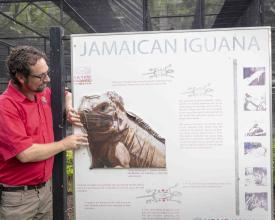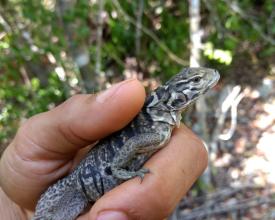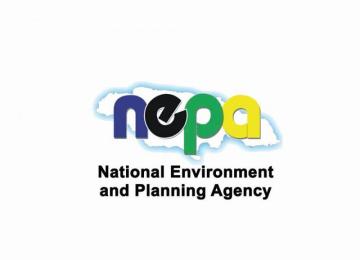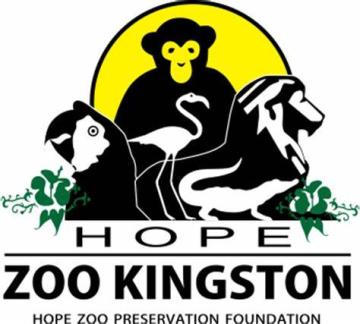
The Hope Zoo Preservation Foundation’s Role in the Iguana Head Start Program
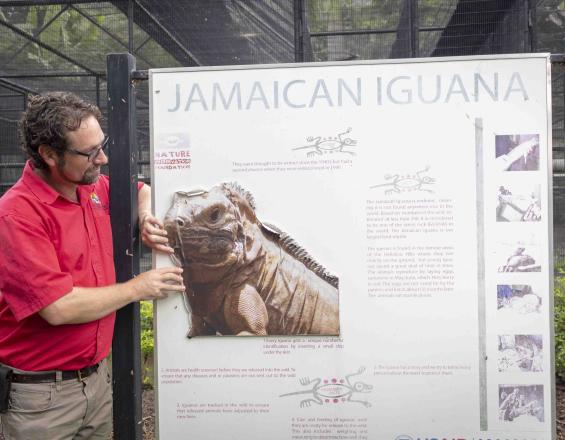
The Hope Zoo Preservation Foundation (HZPF) was formed in July 2011 as a not-for-profit organization to aid in the restoration and preservation of the fauna and flora of the Hope Zoo. It also seeks to offer a safe and interactive wildlife experience through educational programmes in animal care and development as well as the active preservation of threatened, indigenous and exotic species.
Since inception, the Foundation has been working to fulfill its mandate through partnerships on diverse initiatives to protect the unique biodiversity of our island. We believe it is our ethical obligation to successive generations. It is on that basis that the Foundation did not hesitate to get involved in the Iguana Head start initiative. The Jamaican iguana (Cyclura collei) was declared extinct in the 1940’s only to be rediscovered in 1990 when a hunter came across a live specimen. Immediate intervention after its rediscovery led to a successful head-start programme in 1991.
Impacts
From 1991 to 2018 there has been the release/repatriation of 418 animals. In 2018, the highest number in history were released and more hatchlings were taken in than ever before.
The iguanas are essential to the highly threatened and volatile, Jamaican dry forest eco system, they are one of the primary seed distributors and germinators for this endangered habitat. There are many species of endemic plants trees whose survival depend on the Jamaican Iguana. The HZPF’s primary contribution is the head-starting of Jamaican iguanas with the sole purpose of release back into the wild.
To date the majority of the wild population has been found to come from the HZPF. Currently the Foundation can take only in a small percentage of the young iguanas due to housing restraints meaning that 75% of the hatchlings are released directly back into the wild. Research has shown that these animals are preyed upon before they reach adulthood.
